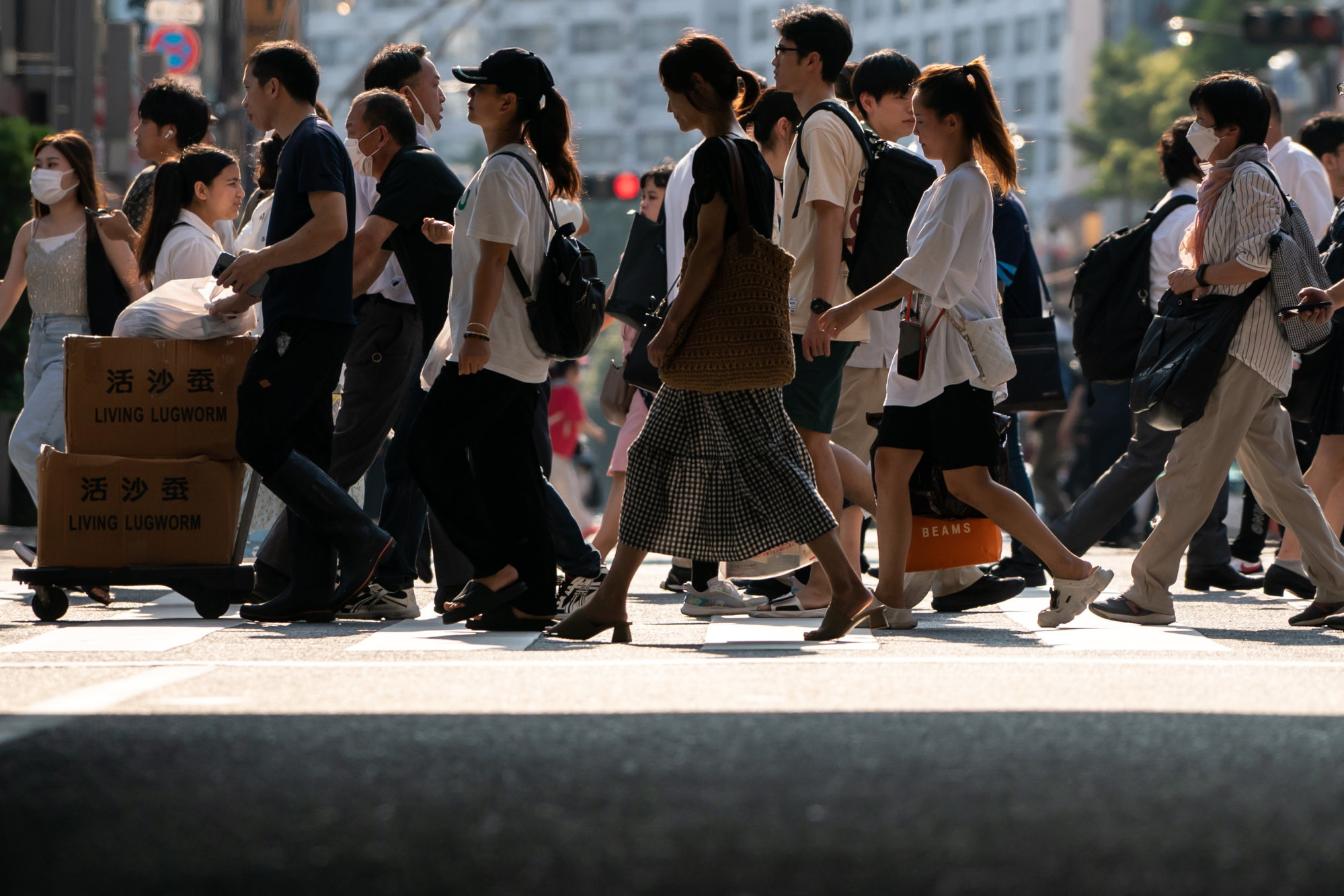Tired from work or home life, Astral Ray Coffee customers can unwind with a roasted brew and some good-natured banter. Dedicated to being oases of respite, such places are still rare in Japan but are slowly increasing in number.

Experts believe one of the main obstacles to people finding places outside work or home is a difference in attitude between Japan and elsewhere about the use of private time.
For example, in many countries around the world, people regularly stop by cafes or bars after work, giving them a place to be that requires little effort on their part, unlike obligations at work or home.
In Japan, most people do not do this, but it is not frowned upon; rather, it casts them in a positive light as serious and hardworking members of society.
At Astral Ray Coffee, the windows and doors are kept open in the summer, creating a welcoming atmosphere for those who stop by. Long bench seating encourages customers to talk to each other.

Iijima, a former teacher, had been thinking of creating a relaxing space for adults and came up with the idea of a cafe with her friend Taeka Shibata. The shop opened in June 2022.
Fumi Miyazawa, a regular at the Nara cafe, loves that it gives her the opportunity to engage in stimulating conversations with staff and other customers, a welcome pause from her job as a nurse.
“I can have face-to-face conversations with people at the counter. It’s a great stress reliever,” Miyazawa says.
The phrase “third place” was coined in 1989 by American sociologist Ray Oldenburg in his book The Great Good Place. Oldenburg feared communities in the United States were in decline because of the expansion of suburbia and a reliance on cars, which he argued lessened a sense of belonging.
In his book, Oldenburg summarises the facets of a third place, including being “neutral ground” to which one has little to no obligation. The place also has regulars who set the tone of a place, it has good accessibility and amenities with a playful mood devoid of hostility, and a sense of belonging as a home away from home.
If we can create a place where strangers can freely connect and feel safe and included, it will enrich Japan as a whole
As the United States became a car-centric society in which people shuttle back and forth between the suburbs and work alone in their vehicles, Oldenburg argues that they required places that serve as a social lubricant to “anchor” people amid the stresses of modern society.
According to a survey conducted by the Organisation for Promoting Urban Development among people aged from 20 to 29 in Tokyo, when respondents were asked which places they find most “comfortable”, 82 per cent said their homes.
Twenty per cent listed izakaya (Japanese pubs), while 14 per cent and 12 per cent respectively said private karaoke rooms and cafes were their favourite place to be.
Of middle-school and high-school students in Yokohama, 82 per cent said they were comfortable in their own homes or friends’ places; 14 per cent enjoyed hanging out at parks; 12 per cent going to fast food restaurants; and 10 per cent to arcades.
While there were disparities in the places enjoyed according to people’s gender, age and financial wealth, fewer than half of respondents listed places other than their own or a friend’s home as a “comfortable place”.
Nobutaka Ishiyama, a professor at Hosei University who studies third places, believes that, although still in its infancy, Japan is witnessing a shift in values from what he calls “big stories” that pursue a sense of belonging to a community or organisation to “small stories” that emphasise individuality in its many forms.

He says people are looking for places where they can freely interact with each other based on similar hobbies or interests outside work. Acceptance of outsiders is also a feature.
“If we can create a place where strangers can freely connect and feel safe and included, it will enrich Japan as a whole.”
Ayako Sakai, 28, a former Tokyoite who runs the Stray Cat cafe in Oyodo, Nara, worked as a community development volunteer from 2018 for three years before settling in the area. She took advice from locals when opening her business in 2021.
Sakai has seen an increase in regular customers, with some who purposely drop by to see her. Some confide in her about their problems at work or are happy to tell her about pursuing new career paths.
“Hopefully they go home feeling better,” says Sakai, who takes joy from her interactions with her customers.
Sakai says she wants Stray Cat to continue to be “a place where people can come and relax [so I can] repay my debt to this community that has treated me so well”.

